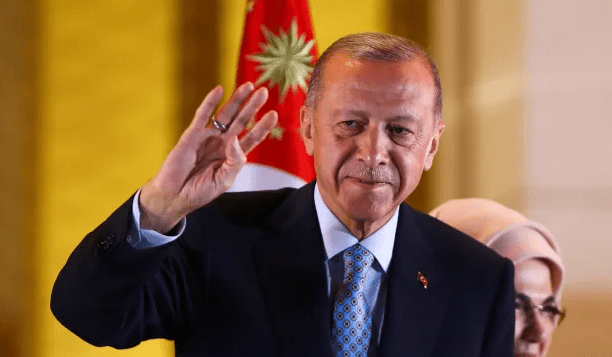When it comes to expanding American sway in the region, Turkey is where it’s at.

The United States’ alliance with Saudi Arabia has long been seen as its most significant partnership in the region. However, Turkey is quickly rising to regional dominance, all the while maintaining strong links to Europe and the United States via its participation in NATO. As Turkey moves closer to the West and works to repair ties with Middle Eastern allies, the country’s geopolitical significance rises. Take advantage of this development and build tighter connections with Turkey if the United States wants to preserve its political and military supremacy in the area.
President Recep Tayyip Erdoan has been a polarizing figure in Turkish politics, and this has complicated efforts to preserve diplomatic ties between Turkey and the United States. His leadership style, which is autocratic and often brutal, is at odds with the values upheld in the West. Since he has strained and repaired relations with a number of countries, it is impossible to predict his policies. Despite his tight relationship with Vladimir Putin, he is against the conflict in Ukraine and the Assad dictatorship in Syria, which Russia supports. While Erdoan claims that U.S.-backed Kurds pose a danger to Turkey’s national security, Turkish soldiers have participated in the campaign against the Islamic State in Syria.
Erdoan’s views have become significantly more Western-friendly as of late. He reversed his stance on Finland and Sweden joining NATO and expressed support for Ukraine’s potential membership application. Turkey’s economic woes, the uprising of Wagner Group leader Yevgeny Prigozhin, which weakened Putin’s stature (especially in the eyes of Erdoan, who survived his own coup attempt in 2016), and Erdoan’s ability to take less of a hard line following his reelection in May all played a role in softening his stance towards Europe. The persecution of Uighurs by the Chinese government is a major factor in the deterioration of Turkey’s relationship with China.
Over the course of the last year, Turkey has also focused heavily on mending fences with its neighbors to the east. In August of last year, for the first time in five years, Israel nominated an ambassador to Turkey, marking the official restoration of ties between the two countries after years of tension. Turkey has also repaired its relations with Saudi Arabia and the United Arab Emirates (UAE), the two most economically powerful nations in the region, after they had deteriorated after Jamal Khashoggi’s murder in Istanbul in 2018. Turkey and Saudi Arabia resumed their collaboration in November after a year of increasing commerce and a meeting of top military officials. Meanwhile, in November, foreign ministers from the United Arab Emirates and Turkey met to discuss ways to expand their countries’ already robust bilateral cooperation.
The United States has an opportunity to make ties with Turkey even more solid now. Both Erdoan and President Biden have expressed enthusiasm about working together over the next five years, with Biden calling Erdoan a “dear friend” during the NATO Summit in Vilnius, Lithuania. Biden’s promise to finalize a sale of F-16s that had been in negotiations since 2021 came soon after the successful drive to join Sweden to NATO.
The United States has to demonstrate its dedication to the cooperation by taking some unpopular actions that will improve the relationship. Congress must be convinced of the benefits of the F-16 purchase. Perhaps Turkey can convince Congress to let them back into the F-35 program if they abandon the S-400 air defense program (which has never gone online anyhow). The United States may also make a commitment to manage Kurdish troops and stop them from entering Iraq from Syria. Tariffs on Turkish goods, such as steel and aluminum, may be lifted if the United States and Turkey reached an economic agreement.
While these requests may seem steep at first, they are necessary if the United States is to have any hope of successfully implementing its goals in the Middle East. With America’s help, Turkey can help strengthen regional security and facilitate peace talks between Israel and its neighbors. Although it has not yet officially expelled anybody, Turkey has begun restricting Hamas’ ability to organize inside its borders. After resuming official relations with Saudi Arabia and the United Arab Emirates early this year, Turkey’s alliance with those nations may lead to tighter ties with Iran. Turkey might serve as an acceptable intermediary if the United States and Iran want to revive or create a new nuclear agreement. Even without an agreement, Turkey’s increased might (particularly in conjunction with Saudi Arabia) may provide the international community greater influence to restrict Iran’s nuclear program. Concerns over a return of ISIS mean that Turkish soldiers are vital to preventing the spread of the caliphate, and Incirlik Air Base is important to coalition forces advancing into northeastern Syria for air attacks and supplies.
There are several challenges that must be overcome before the United States and Turkey can work together effectively. Erdoan would have to restrain Turkish soldiers from assaulting the Kurdish Syrian Democratic soldiers, who do not constitute an existential danger to the border, while still aiding the war against ISIS. Turkey was expelled from the Joint Strike Fighter program in 2019 due to its acquisition of Russian S-400 air defense systems, but the F-16 contract is back on the table. Given Erdogan’s history of autocratic governance, the United States will also face domestic criticism for publicly backing him.
The United States is asking a lot by forming an alliance with President Erdoan and Turkey. A collaboration with Turkey is essential for the United States to retain its degree of influence in the Middle East, given Turkey’s rise as a leader in the area and its refocused relationship with Europe.






